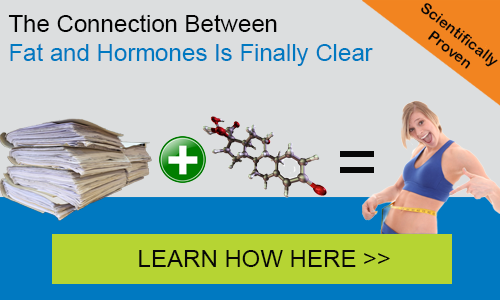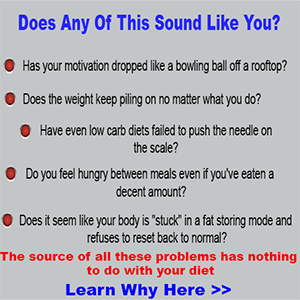The 6 Steadfast Rules To Controlling Hunger (and boosting your weight loss)
Let's face it, trying to lose fat can be hard at times. The biggest thing that comes up time and time again is hunger. In a perfect world, you would find a way to not be hungry and still watch your waistline shrink. Can that really be done? Below are 6 tips to help guide your waistline to a new low.
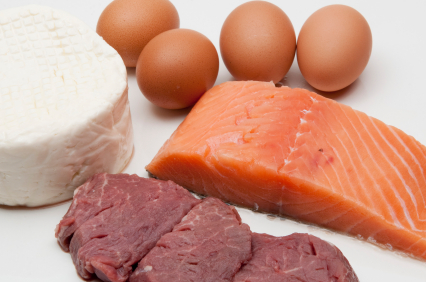 1) Eat more protein
1) Eat more protein "Are you doing it?" Test out drinking more water and I bet you will drop fat without trying harder (8, 12, 22, 23).
"Are you doing it?" Test out drinking more water and I bet you will drop fat without trying harder (8, 12, 22, 23). 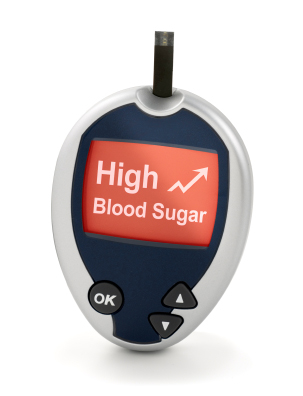 The body employs a myriad of different feedback loops and regulation techniques. I'm sure you have read about these many times and scratched your head or fallen asleep. Everything from mTOR and AMPK to all the hormones like GH, testosterone, estrogen, leptin, Neuropeptide Y, ad nauseam (9, 16, 19, 20, 25).
The body employs a myriad of different feedback loops and regulation techniques. I'm sure you have read about these many times and scratched your head or fallen asleep. Everything from mTOR and AMPK to all the hormones like GH, testosterone, estrogen, leptin, Neuropeptide Y, ad nauseam (9, 16, 19, 20, 25).
References
2. Alfenas Rde C, J Bressan, AC de Paiva. Effects of protein quality on appetite and energy metabolism in normal weight subjects. Arq Bras Endocrinol Metabol. 2010; 54(1):45-51.
3. Anfossi G, I Russo, G Doronzo, M Trovati. Relevance of the vascular effects of insulin in the rationale of its therapeutical use. Cardiovasc Hematol Disord Drug Targets. 2007; 7(4):228-49.
4. Bonen A, GL Dohm, LJ van Loon. Lipid metabolism, exercise and insulin action. Essays Biochem. 2006; 42:47-59.
5. Boschmann M, J Steiniger, U Hille, et al. Water-induced thermogenesis. J Clin Endocrinol Metab. 2003; 88(12):6015-9.
6. Cleland SJ, JR Petrie, S Ueda, HL Elliott, JM Connell. Insulin-mediated vasodilation and glucose uptake are functionally linked in humans. Hypertension. 1999; 33(1 Pt 2):554-8.
7. Coffey VG, DR Moore, NA Burd, et al. Nutrient provision increases signalling and protein synthesis in human skeletal muscle after repeated sprints. Eur J Appl Physiol. 2010.
8. Dennis EA, AL Dengo, DL Comber, et al. Water consumption increases weight loss during a hypocaloric diet intervention in middle-aged and older adults. Obesity (Silver Spring). 2010; 18(2):300-7.
9. Grosz A, A Szatmari. The history, ingredients and effects of energy drinks. Orv Hetil. 2008; 149(47):2237-44.
10. Holger JS, KM Engebretsen, SJ Fritzlar, LC Patten, CR Harris, TJ Flottemesch. Insulin versus vasopressin and epinephrine to treat beta-blocker toxicity. Clin Toxicol (Phila). 2007; 45(4):396-401.
11. Hursel R, L van der Zee, MS Westerterp-Plantenga. Effects of a breakfast yoghurt, with additional total whey protein or caseinomacropeptide-depleted alpha-lactalbumin-enriched whey protein, on diet-induced thermogenesis and appetite suppression. Br J Nutr. 2010; 103(5):775-80.
12. Kant AK, BI Graubard, EA Atchison. Intakes of plain water, moisture in foods and beverages, and total water in the adult US population--nutritional, meal pattern, and body weight correlates: National Health and Nutrition Examination Surveys 1999-2006. Am J Clin Nutr. 2009; 90(3):655-63.
13. Kerns W,2nd, D Schroeder, C Williams, C Tomaszewski, R Raymond. Insulin improves survival in a canine model of acute beta-blocker toxicity. Ann Emerg Med. 1997; 29(6):748-57.
14. Krukenkamp I, D Sorlie, N Silverman, A Pridjian, S Levitsky. Direct effect of high-dose insulin on the depressed heart after beta-blockade or ischemia. Thorac Cardiovasc Surg. 1986; 34(5):305-9.
15. Leidy HJ, CL Armstrong, M Tang, RD Mattes, WW Campbell. The Influence of Higher Protein Intake and Greater Eating Frequency on Appetite Control in Overweight and Obese Men. Obesity (Silver Spring). 2010.
16. Meier U, AM Gressner. Endocrine regulation of energy metabolism: review of pathobiochemical and clinical chemical aspects of leptin, ghrelin, adiponectin, and resistin. Clin Chem. 2004; 50(9):1511-25.
17. Noreen EE, MJ Sass, ML Crowe, VA Pabon, J Brandauer, LK Averill. Effects of supplemental fish oil on resting metabolic rate, body composition, and salivary cortisol in healthy adults. J Int Soc Sports Nutr. 2010; 7:31.
18. Reitelseder S, J Agergaard, S Doessing, et al. Whey and casein labeled with L-[1-13C]leucine and muscle protein synthesis: effect of resistance exercise and protein ingestion. Am J Physiol Endocrinol Metab. 2011; 300(1):E231-42.
19. Roepstorff C, N Halberg, T Hillig, et al. Malonyl-CoA and carnitine in regulation of fat oxidation in human skeletal muscle during exercise. Am J Physiol Endocrinol Metab. 2005; 288(1):E133-42.
20. Ronnestad BR, H Nygaard, T Raastad. Physiological elevation of endogenous hormones results in superior strength training adaptation. Eur J Appl Physiol. 2011.
21. Smith GI, P Atherton, DN Reeds, et al. Dietary omega-3 fatty acid supplementation increases the rate of muscle protein synthesis in older adults: a randomized controlled trial. Am J Clin Nutr. 2010.
22. Stookey JD, F Constant, BM Popkin, CD Gardner. Drinking water is associated with weight loss in overweight dieting women independent of diet and activity. Obesity (Silver Spring). 2008; 16(11):2481-8.
23. Stookey JD, F Constant, BM Popkin, CD Gardner. Drinking water is associated with weight loss in overweight dieting women independent of diet and activity. Obesity (Silver Spring). 2008; 16(11):2481-8.
24. Veldhorst MA, AG Nieuwenhuizen, A Hochstenbach-Waelen, et al. A breakfast with alpha-lactalbumin, gelatin, or gelatin + TRP lowers energy intake at lunch compared with a breakfast with casein, soy, whey, or whey-GMP. Clin Nutr. 2009; 28(2):147-55.
25. West DW, SM Phillips. Anabolic processes in human skeletal muscle: restoring the identities of growth hormone and testosterone. Phys Sportsmed. 2010; 38(3):97-104.
About Jayson Hunter & Jaylab Pro
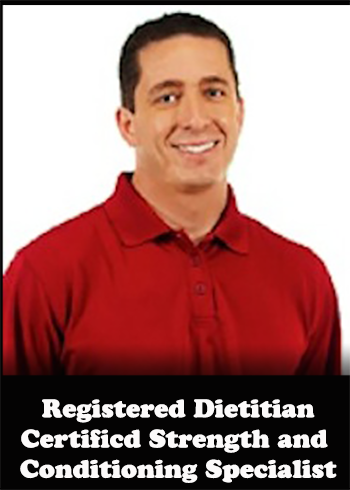
Jaylab Pro was founded by Registered Dietitian Jayson Hunter. Jayson has been recognized as one of America's foremost weight loss experts by America's Premier Experts™. He has also been featured in USA Today for this accomplishment. Jayson is also a best-selling author having co-authored multiple books in health & fitness and business growth. Jayson and the Jaylab Pro team are proud to create content that helps improve the lives of millions of people around the world. We hope you enjoy it just as much as others have.
 If you order a JayLabPro SmartShip product or any Combo Package, we will automatically ship you a new supply of the product or products you have ordered every month, starting 30 days after your initial order is shipped, and continuing until you cancel. The credit card you are using today will be billed the lowest available price for those product or products when your order is shipped, but shipping will be FREE. You may log into your customer account or call our customer service department toll-free at 1-888-9GETPRO (1-888-943-8776) between the hours of 8am – 9pm EST Mon-Fri to cancel future shipments, customize the timing of your shipments, or change the credit card used for billing.
If you order a JayLabPro SmartShip product or any Combo Package, we will automatically ship you a new supply of the product or products you have ordered every month, starting 30 days after your initial order is shipped, and continuing until you cancel. The credit card you are using today will be billed the lowest available price for those product or products when your order is shipped, but shipping will be FREE. You may log into your customer account or call our customer service department toll-free at 1-888-9GETPRO (1-888-943-8776) between the hours of 8am – 9pm EST Mon-Fri to cancel future shipments, customize the timing of your shipments, or change the credit card used for billing.




